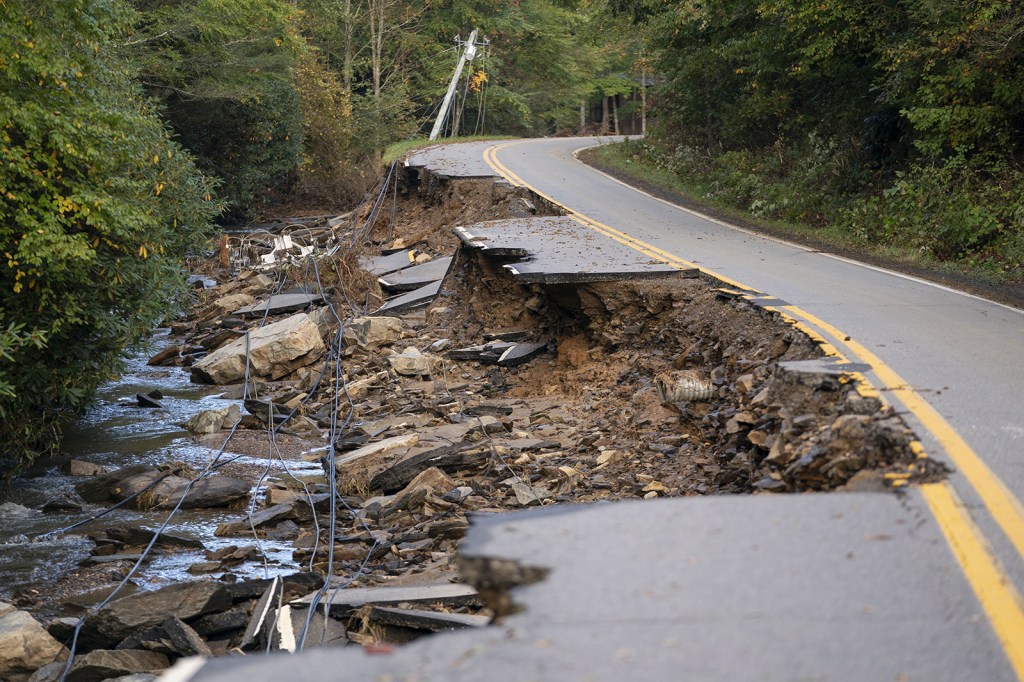
By Mike Magner, CQ-Roll Call
WASHINGTON — The gorgeous fall colors will still come this month to the Great Smoky Mountains in western North Carolina, but many of the millions of travelers who normally arrive this time of year at America’s most-visited national park probably will not, in the wake of Hurricane Helene.
The result is a triple tragedy for the region: extensive damage that has closed many roads and trails in Great Smoky Mountains National Park, thousands of homes and businesses in ruins and millions of dollars in lost revenues from tourism and recreation.
The full extent of the damages to the park and the communities surrounding it might not be known for weeks, but it is clearly a calamitous situation in the park that last year drew 13.3 million visitors, three times more than either the Grand Canyon or Yellowstone National Park, according to the National Park Service.
Those visitors pumped more than $2 billion into the region’s economy, with a large share coming in the autumn leaf-peeping season, the Park Service says.
“Great Smoky Mountains National Park is consistently the most visited national park in the country,” the service’s website says. “It lies within a day’s drive of more than half the U.S. population and thus offers the opportunity for tens of millions of people to have a national park experience close to home while also drawing visitors from around the world.”
Officials said the hurricane claimed at least 40 lives in Buncombe County around Asheville, N.C., less than 40 miles from the park, but the damage was widespread across the region. Many were still without water, power, gasoline, food supplies and cellphone service on Tuesday, four days after the worst of the storm.
President Joe Biden plans to visit the area Wednesday, flying by helicopter over blocked roads, overflowing streams and severely damaged buildings.
Some parts of the region are slowly springing back to life, as the waters recede, power is restored and supplies of food and fuel arrive.
“We are a tourist town,” Karen Proctor, executive director of the Swain County Chamber of Commerce in Bryson City, about 65 miles west of Asheville, said in a phone interview Tuesday. “If you have reservations please don’t cancel them. Just bring staples, supplies if you’re staying in a cabin. Fill up before you come and bring cash.”
Conditions were also improving Tuesday in Cullowhee, N.C., southwest of Asheville, although the 50th annual Mountain Heritage Day festival planned for last weekend at Western Carolina University had to be canceled, said Brandon Rice, a communications student at WCU.
“We have phones and water and the river is receding, but a lot of roads are closed,” Rice said by phone. “It’s good to see the community rally and help each other.”
The ongoing search-and-rescue phase following Hurricane Helene’s wrath through several southern states will be a “multibillion-dollar undertaking,” Homeland Security Secretary Alejandro Mayorkas said Tuesday at a White House briefing. “The rebuilding is something that is not for today.” He declined to provide a cost estimate, but he said it would be very expensive and take multiple years to complete.
The administration has approved $1.7 million in individual assistance, which could begin showing up in storm victims’ bank accounts via direct deposits “as early as tomorrow,” Mayorkas said.
Most business leaders and government officials were unable to be reached Tuesday, especially at the National Park Service, where 200 permanent employees and 140 seasonal employees in North Carolina were scrambling to assess the damages in Great Smoky Mountains National Park.

















































